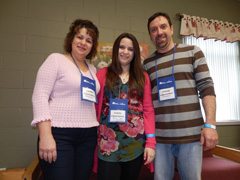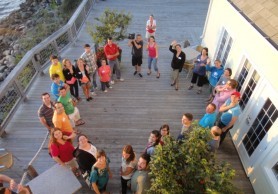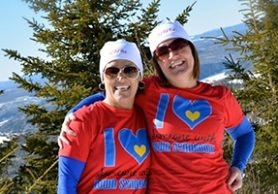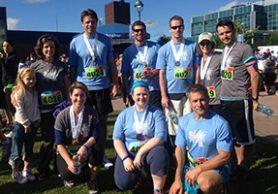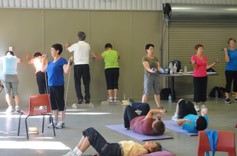Stories of inspiration
from people just like you...
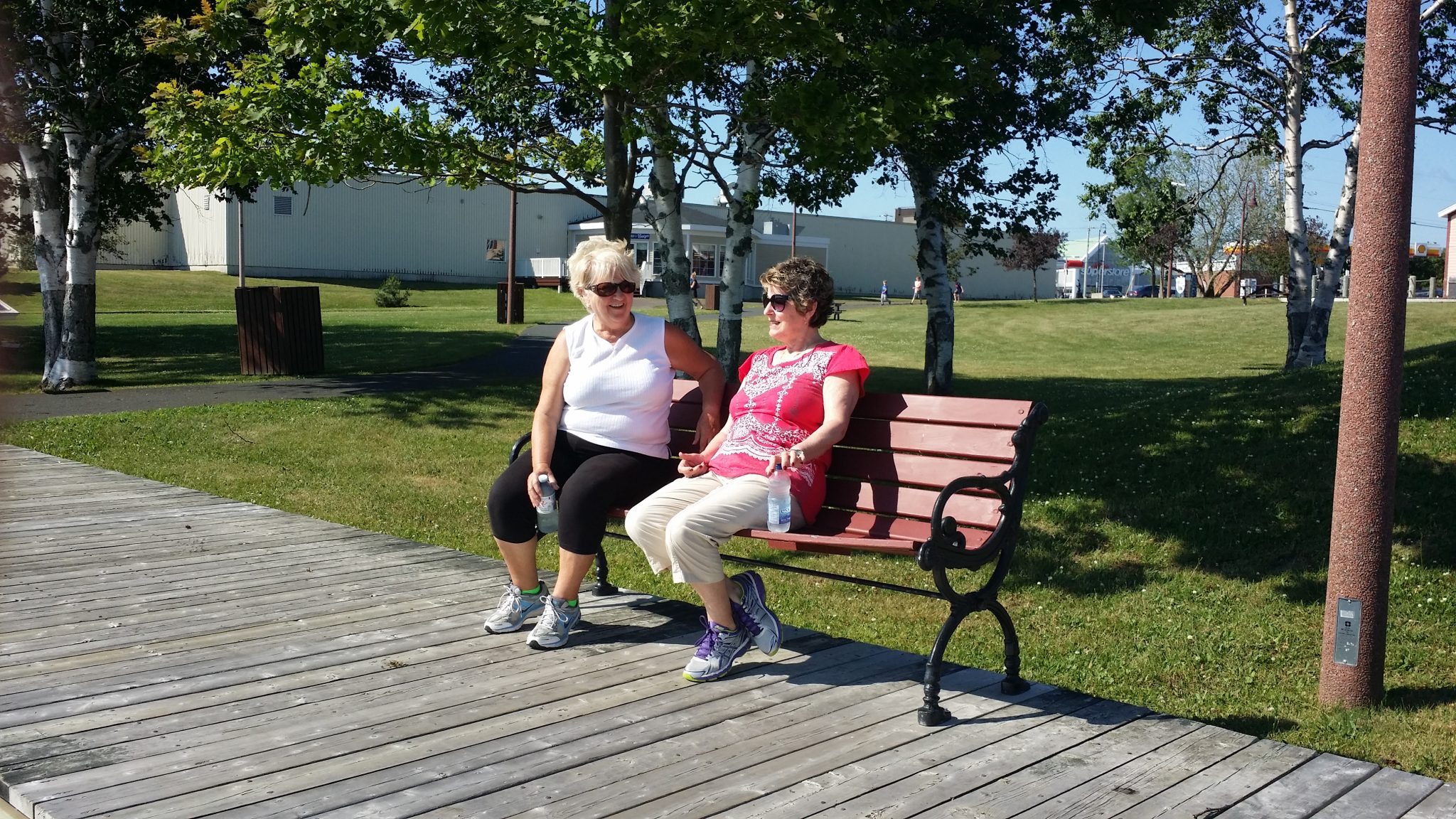
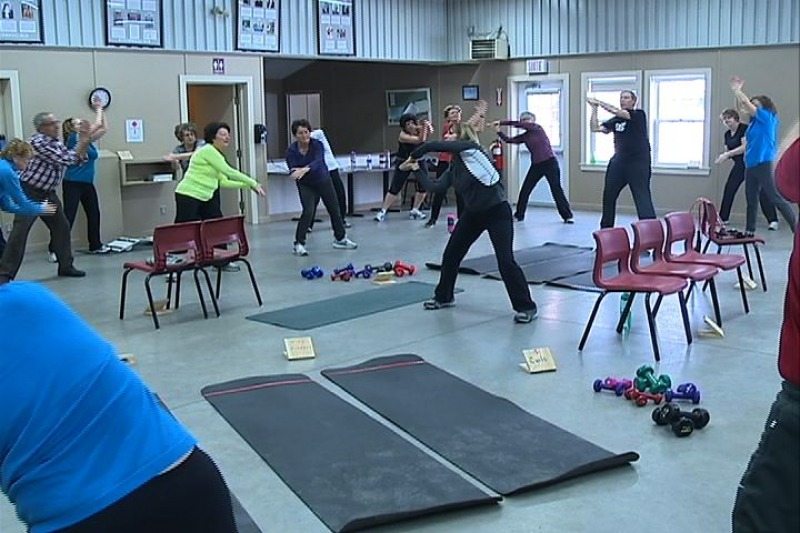
How one community’s seniors are leading the charge for an age-friendly community.
Some people know a good thing when they see it. That’s why when a group of seniors heard about the MADA program, they immediately brought it to the attention of the Regional Municipality of Tracadie in late 2012.
“It grew straight from a request that came from our community,” says Stéphanie Sonier, coordinator of Tracadie’s Active Living Commission. MADA stands for ‘Municipalité amie des aînés’ or ‘Age-Friendly Community’, a global age-friendly movement aimed at creating communities that enable seniors to age actively, enjoy good health, stay connected, and participate fully in their community.
In March 2013, the Municipality approved the initiative, and a year and a half later, the Regional Municipality of Tracadie became recognized as age-friendly!
But in order to gain that recognition, there were many steps involved. Public consultations were held with those aged 50+ to get their ideas on what was needed for their community to become age-friendly.
“The ideas from the public consultations were gathered and organized into three areas for action: housing and security, participation and social inclusion, leisure and cultural activities,” notes Stéphanie. “All of it really came from the seniors.”
But there were challenges to overcome. The initial steering committee from 2012 dissolved because some members felt that the project wasn’t moving fast enough. To get momentum going again, a new committee was formed with Stéphanie stepping in as the coordinator and new members were chosen to align with the strategic action areas that came out of the public consultations.
“Because one of the action areas identified was participation and social inclusion, we wanted local businesses sensitized to how they might adapt to meet the needs of seniors, so we invited the Director of the Chamber of Commerce to join the committee. For housing and security, we have an RCMP representative.” The committee is rounded out by three representatives who are seniors as well as a representative from Déplacement Péninsule, a transit system within the Acadian Peninsula that provides transportation for basic needs like getting groceries or attending medical appointments.
This revamped committee got the initiative moving forward again, hiring a consultant to structure the action plan, which was presented to the public in June 2014. Since then, the committee has been hard at work on the actions outlined in this plan, and it’s really hitting its stride! And Stéphanie says some of the biggest support they receive is from the seniors themselves.
“There’s a group we rely on quite a bit who are really, really involved, and they are all seniors. Their ages range from 55-80, and they’re our way in with seniors in the community.” With their finger on the pulse of what’s happening with seniors in the region, they are also often on top of new information or decisions made by government that might help the community.
“All the information I get from them, I check to see if the suggestions could help address the actions outlined in the strategic plan. If it is relevant, I try with all my means to achieve it,” says Stéphanie.
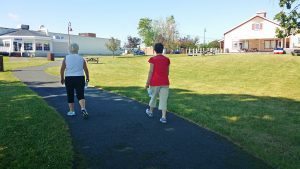
Walking trails around Tracadie
One example of such an initiative is the Bench Fit program. While seniors in the community tend to be active indoors during the year, they are less so during the summer. So the municipality was asked to start an outdoor fitness circuit program during the summer months. But the place where they wanted to hold the program, a trail in the veteran’s park, didn’t have enough benches. So a partnership is being looked at between the Commission of Culture and Environment and the Commission for Active Living to buy benches for the trail. It’s a win-win, helping the cultural side by increasing the number of benches in the park while giving seniors a location for Bench Fit.
The Bench Fit story highlights one of the big challenges of the program: finding the resources to roll out all the activities and projects that are proposed. But with support from government and the municipality, as well as strategic partnerships, things have being moving along nicely.
Networking, as well as sharing ideas and programs with other communities in New Brunswick who have also adopted an age-friendly approach, is also important. Provincially, all the MADA communities get together once or twice a year to share best practices. Stéphanie says she’s learned from others and she has also shared initiatives such as Tracadie’s seniors’ resource guide with many of her provincial MADA colleagues. This guide includes a list of activities available for seniors in the area as well as a phone directory with important contact information for local doctors, pharmacies, and emergency services. Stéphanie says she always returns from these meetings with ideas that she brings back to the committee.
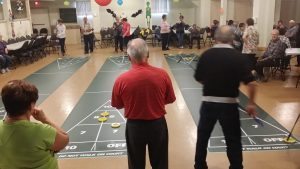
Seniors in Tracadie have access to indoor facilities to be active and socialize all year round
“We look to see what’s feasible and if it’s pertinent for us here. We bring a lot of ideas, but we also really listen to what our population needs and wants.”
This collaborative, community-based approach has led to a program that stands as an example of what’s possible for New Brunswick’s future when it comes to age-friendly communities: places where seniors are active, safe, and involved in the social, economic, cultural, intellectual and civic life of the places they call home.
Feeling inspired?
Well it's time to take the next step! Find the resources you need to start your wellness story here!




